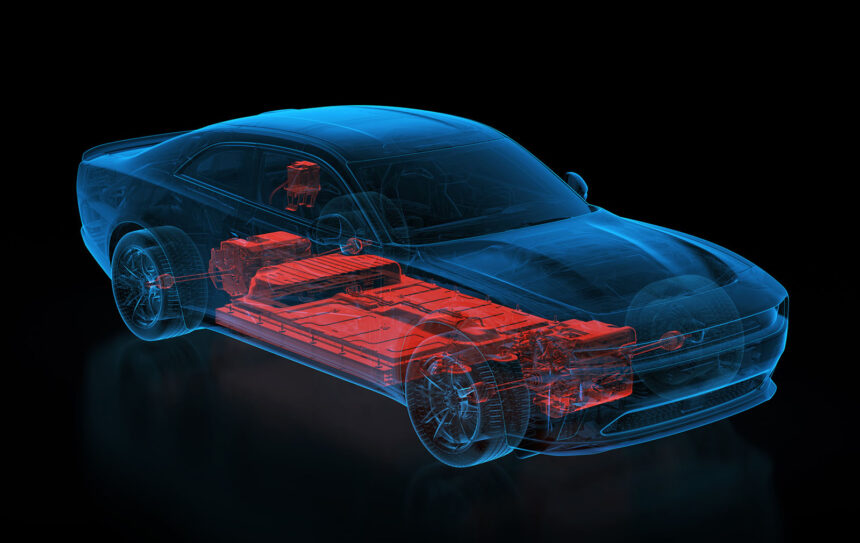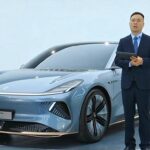Stellantis to Begin Road Testing Factorial’s Solid-State Batteries in Two Years
Stellantis, the multinational automotive manufacturer, has announced plans to start road testing solid-state batteries developed by American start-up Factorial within the next two years. This move is expected to revolutionize the electric vehicle industry by significantly improving energy density and reducing weight.
Factorial’s solid-state cells boast an impressive energy density of over 390Wh/kg, a substantial improvement over the current lithium-ion batteries that typically have around 270Wh/kg. This advancement means that electric cars equipped with solid-state batteries will offer enhanced range capabilities and reduced overall weight compared to existing models.
As part of the testing phase, Stellantis will equip a fleet of Dodge Charger Daytonas with Factorial’s batteries in 2026 to evaluate their performance and durability in real-world conditions. The company has stated that vehicles based on the STLA Large platform, which includes brands like Alfa Romeo, Maserati, Jeep, Dodge, and Chrysler in the D- and E-segments, will be the primary focus for implementing the new batteries.
The competition to introduce a production car with solid-state batteries is intensifying, with several manufacturers making significant strides in this area. SAIC, the parent company of MG, recently announced plans to incorporate solid-state battery technology into its vehicles starting next year. The IM L6 saloon from SAIC is already showcasing a semi-solid-state pack that enables a remarkable range of 497 miles on a single charge.
Nissan has revealed its intentions to launch its first solid-state electric vehicle by 2028, featuring batteries that are half the size and weight of current lithium-ion packs with equivalent capacity. Toyota is also targeting a commercial release of solid-state batteries between 2027 and 2028, while Chinese manufacturer Chery aims to have its high-energy density solid-state batteries ready for production by 2026.
Additionally, the Volkswagen Group has partnered with American firm QuantumScape to mass-produce solid-state batteries through its PowerCo battery manufacturing arm. However, not all manufacturers share the same enthusiasm for solid-state technology. Mercedes-Benz’s technology chief, Markus Schäfer, has expressed skepticism about the necessity of solid-state batteries due to the remarkable advancements achieved with lithium-ion cells.
In conclusion, the automotive industry is on the brink of a major technological shift with the development and adoption of solid-state batteries. As various manufacturers race to bring these innovative power sources to market, consumers can anticipate significant improvements in electric vehicle performance, range, and sustainability in the near future.







